When a wrestling fan hears the book title, Under The Mat, he or she (probably he) most likely assumes it to be about the shenanigans that happen when wrestlers hide beneath the ring to do surprise run-ins. One might expect to hear funny stories about the time the nWo’s toilet bucket tipped over during a show and everyone in hiding had to flee to one corner. As you’ll see, however, the actual Under The Mat is a lot less light-hearted and way more full of crap than anyone could imagine.
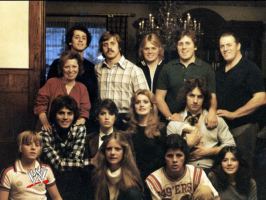
Printed after her divorce from Davey Boy Smith but before The British Bulldog’s death, Diana Hart’s autobiography contains not so much her life story as a non-stop barrage of insane allegations and third-hand stories presented as fact. We all know that the Harts were, as one psychic medium so insightfully noted, not a normal American family, but thanks to Diana’s book, the Harts and their extended families are the most despicable band of lost souls in the history of Western literature.
The book, a 200-page collection of implausible family secrets strung together incoherently, sounds as if it were dictated under hypnosis by one of those crooked therapists — you know, the ones who take in a patient with mild stress issues and end up convincing them their parents forced them into satanic rituals as a child.
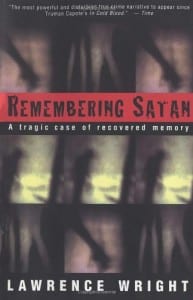
The only reason Under the Mat isn’t even more notorious than it is is that hardly anyone has ever gotten to read it; the book was pulled from the shelves after Martha Hart, Owen’s widow, filed a lawsuit over her family’s portrayal in the book. Apparently, she didn’t take kindly to allegations that she threw a tantrum over what food to serve at her wedding, or that she pussy-whipped Owen, or that her mother and aunt are alcoholics (the latter dropping her false teeth in the toilet before vomiting at the wedding), or that she was always “a bitch” to her “blindly loyal” sister, who ended up leaving her husband for their son’s hockey coach.
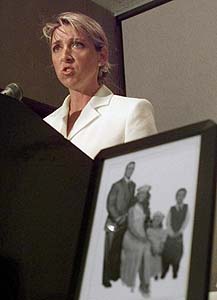
Frankly, Diana was lucky that Martha was the one who filed suit, as she and her side of the family get off easy compared to most everyone else in the book. Literally dozens of people had much more damning claims leveled against them in Under The Mat and stood to gain much more in damages from potential lawsuits. For example, this bit from the very first chapter implicates at least four members of her extended family in illegal activity:
“My sister Ellie was avoiding me perhaps because her husband Jim Neidhart was in the car with Davey on their way to the home of Alison’s ex-husband, Ben Bassarab, to get Davey a morphine fix.”
Diana should at least get credit for efficiency, killing the two birds known as “awkward sentence structure” and “legal liability” with a single stone. Not only is the prose clunky, but the author seems to have gone out of her way to make it clunky by dropping as many names as humanly possible in incriminating situations.
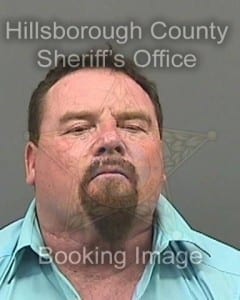
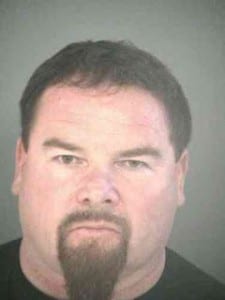
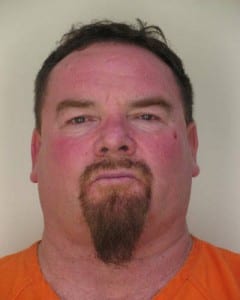
After the lawsuit was filed and her book was recalled, Diana claimed that her words had been twisted from what she originally submitted to her co-author, Kirstie McLellan, so that whatever stories weren’t fabricated entirely by her ghostwriter were embellished and distorted beyond recognition. This casts serious doubt on every accusation she makes in her book, from the allegation that both her husband and Jim Neidhart regularly drugged their wives and raped them in their sleep to the claim that Bruce’s wife’s supposed miscarriage was just a cover story to go to the hospital for a boob job.
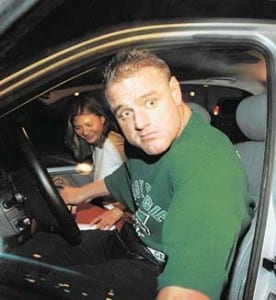
Fun Fact: When dating Bruce’s wife, Davey Boy injected his penis with an erection drug.
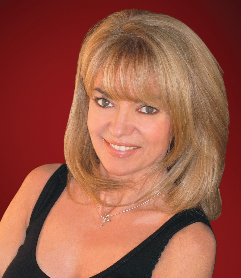
To make matters worse, it’s not at all easy to distinguish the lies from the exaggerations from the true stories. It’s hard to say where Hart’s voice begins and McLellan’s begins (except for the occasional proofreading error, where Diana’s ghostwriter has seen some slang she’s unfamiliar with and tried to “correct it,” only for both words to end up in the published draft. That’s the only explanation I can think of for the sentence, “The match was a complete abortion aberration.”).
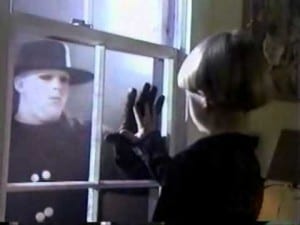
Still, you would think that between a hired author, the editors, and the publisher of the book, someone would have realized that naming names at every opportunity and publishing unverifiable details is irresponsible from both a moral and a legal standpoint. (I, on the other hand, have replaced the first and last names of most of those people with, “[name redacted]” just to be on the safe side)But, never one to let an opportunity to get sued go to waste, the author goes on for paragraphs at a time about the salacious sins of so-and-so, even when the dirt has nothing to do with the topic at hand, and even when no one has ever heard of the evil-doer. For instance, a chapter about growing up in the Hart House digresses with a story about a certain wrestling fan [name redacted] who moved in to the house in the late 80s and always left child pornography strewn about the house. Without skipping a beat, she then talks about a treadmill she liked. These anecdotes aren’t just legally risky, they’re totally off-topic.
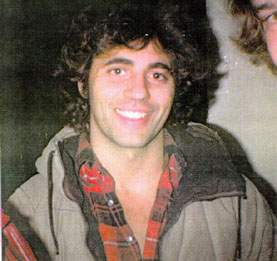
Diana was 16 when she got her first period. Also, no doubt to the reader’s amazement, she got stretch marks when she was pregnant. So begins the chapter called, “Dean” about her late brother. Also in the “Dean” chapter is a paragraph about how Ellie Hart’s best friend in high school, [name redacted], had no arms and used to order Ellie around. “Get this for me. Get that for me,” she would say (maybe because she had no arms).
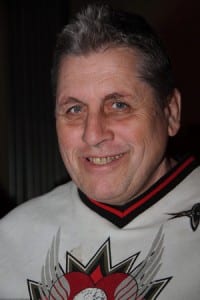
A chapter ostensibly about Smith Hart is mostly about his crazy first wife, which includes a lengthy discussion of what happened to a wrestler the wife dropped acid with. At least it confirms the existence of Satanic Ecstasy Hart (or “Satanya”), as mentioned in Bret’s book.
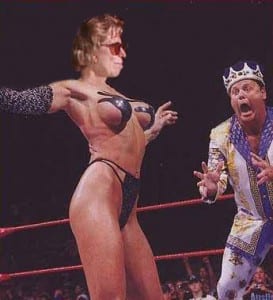
Somehow, a story about Andre the Giant turns into a story about his favorite stripper, which turns into a story about the Hart siblings hanging out with the stripper’s kids, which yields this gem: “The idea of my mother taking her top off in public was beyond comprehension.”
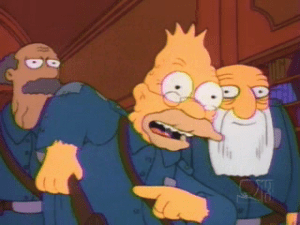
There are tangents within tangents and anecdotes that go nowhere; the second chapter is simply called, “Wrestlers I Have Known.” In another chapter, the payoff to a two-paragraph story about a mean dog they had at their house was a young Owen Hart saying, “Boy, that’s a mean dog.” The name on the cover says, “Kirstie McLellan,” but I could swear Diana paid Grampa Simpson to write her book.
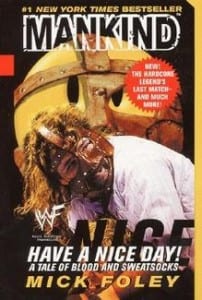
The least the author could do to make her life story readable would be to embed these digressions in parentheses, but Diana is as thrifty with punctuation as most writers are with libelous claims, using on average barely half a pair of them per chapter. By comparison, Mick Foley easily surpasses Diana’s total in the first four chapters alone of Have a Nice Day, and he doesn’t pause every two sentences to, say, identify which of his opponent’s brothers-in-law unsuccessfully hectored his wife into having an abortion.
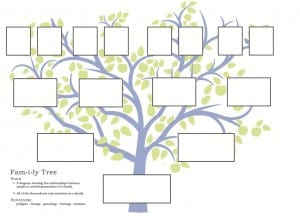
Hardly anyone mentioned in the book escapes without at least two relatives, friends, or spouses also getting their names (first and last) dragged through the mud. If Bret Hart’s book reads like an encyclopedia, Diana’s reads like a genealogy. That is, if family trees documented every time one branch purposefully pumped out branch after branch of her own while smoking and getting high in hopes that the two oldest branches would pity her and leave her their house when they died.
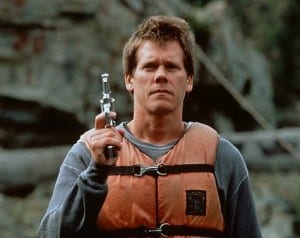
Giving new meaning to the term, “tell-all book,” Diana dishes on the personal details of people tangentially related to other people who are themselves only tangentially related to the story. If Kevin Bacon has any family secrets, he should count himself lucky that, by some extreme long shot, his name never ended up in this book.
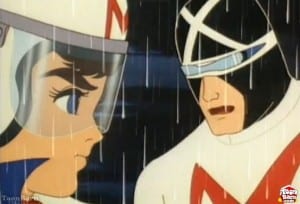
Take, for example, a guy I’ll call, “Wrestler X.” Ever wanted to know the names of Wrestler X’s alcoholic parents? Or his grandparents? Or how both his grandfather and his father beat their wives? What about the name of the wife and children of one of Wrestler X’s friends? Or how said friend, before he died of cancer, intentionally broke his daughter’s legs as part of an insurance fraud scheme, according to a story Diana heard from Wrestler X’s wife, who was raised in a foster home after her parents were found to be unfit and later shared an apartment with a certain Hart brother and his girlfriend [name redacted], whom Wrestler X raped? Well, do I have the book for you!
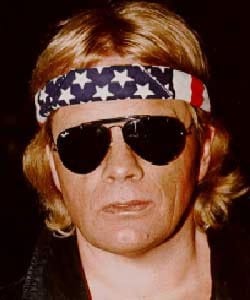
Maybe you wanted to find out a little more about Bruce Hart’s wife, whose stupid single mother [name redacted] was a ring rat like her underage daughter. Diana speculates that Bruce’s future wife not only got pregnant intentionally to blackmail the family, but had her second child by the famous wrestler [name redacted]. She also had wild sex parties at her house while Bruce was away, which Bruce only found out about when his friend [name redacted] ratted her out.
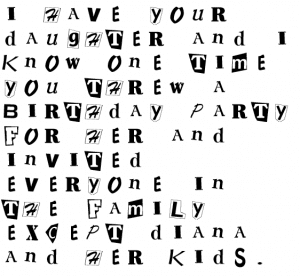
Things get even worse than that when she spills the beans on things that aren’t illegal, but you still wouldn’t want put into print. You, the reader, might be a perfectly upstanding person, but I can bet you wouldn’t want your Social Security number revealed to the world. Fortunately, Diana never gives out that particular information (if only because most of the people in the book aren’t American and thus don’t have a Social Security number), but she does give out a lot of personal info that could not possibly interest anybody reading the book, with the exception of stalkers and extortionists.
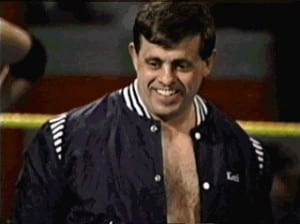
Ever wanted to know about Keith Hart’s 1995 divorce proceedings? No? What about very specific information on his family? No? You’re kidding, thinks Diana. Of course you do! Keith’s wife, whose name was [name redacted], “got the house, $2,500 a month alimony, plus $1,800 for child support and custody of 13-year-old [name redacted], 7-year-old [name redacted] and 4-year old [name redacted].”
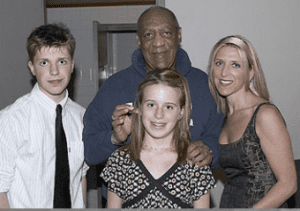
Martha, Owen’s wife, is Jewish, “but doesn’t advertise that fact.” You know who does advertise that fact? Diana Hart, as it ended up in her book.
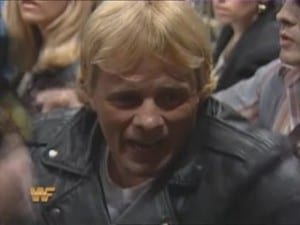
Elsewhere, Diana discusses one of Bruce Hart’s ex-girlfriends, whom she identifies by her full name, along with her now-ex-husband and her two kids. Then, she name-drops another Bruce Hart ex and how she got raped when she went to a foreign country. In all, she publishes the names and bios of four such ex-girlfriends, as if they’d think it was neat to have their names in print.
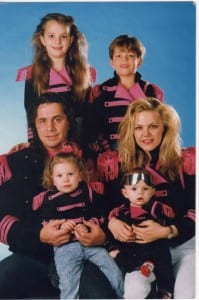
Some passages ooze with passive aggression, like when Di says that her sister-in-law Julie was angry with her, thinking Diana “told people Bret only married her because she was pregnant with their first child, Jade,” which Di totally did not do! Oh, and by the way, did you hear Julie was already pregnant when she married Bret?
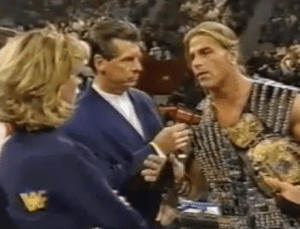
Otherwise completely unfamiliar with the concept of privacy, Diana comes hilariously close to self-awareness when she describes being uncomfortable doing a racy angle with Shawn Michaels because, “[f]or one thing, I was using my real name.”
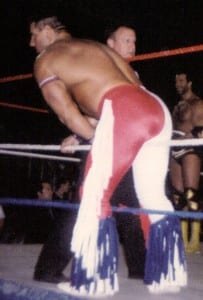
The only person in the whole book whose identity is protected? Davey Boy’s first steroid doctor, who gets a pseudonym.
Fun Fact: One of Diana’s parents was an alcoholic, but I won’t tell you her name!
It’s not just invasions of privacy and labyrinthine tales of debauchery in Under The Mat, though. There are a few bright spots amid the muck-raking and scandal. One of those bright spots happens to be named Diana Hart. See, a recurring theme in this book is that Diana and Owen were their dad’s absolute favorite out of the dozen Hart kids just because they were so doggone wonderful and promising.
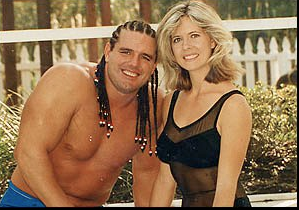
A highly suspect foreword, supposedly written by the Hart patriarch, spells this out pretty plain to a gullible reader. In his gushing foreword, “Stu” describes Diana as “the perfect human specimen” and a “straight shooter in every way” and defends her right to publish her book even if it makes some people (read: everyone) upset. This strongly suggests that, if this is even Stu speaking, he hasn’t read the book (and Bret’s book says he hadn’t).
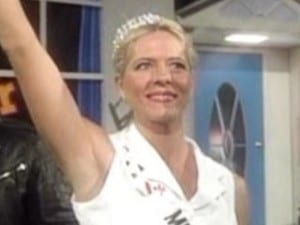
(In keeping with the rest of the book’s lack of credibility, the foreword could be phony, too. Sure, it lists Stu Hart as its author, but you can’t take anything in this book at face value. For one thing, in the rest of the book, Stu is incapable of uttering a sentence without the word “gaddamn,” but none of that word’s 35 occurrences in the text happen in the foreword.
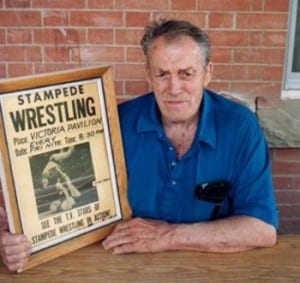
But the biggest red flag is when the person writing the forward says that “it’s high time someone who’s paid her dues, sings the blues.” Can you really see hard-nosed, no-nonsense Stu Hart quoting Ringo Starr?)
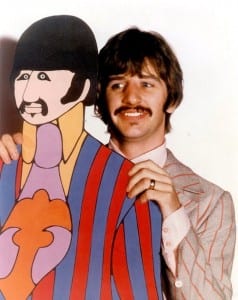
If Diana and her late brother Owen are the heroes, the villains are the “bastard brother in-law” Jim Neidhart (though he prefers to be called, “The Anvil”) and Diana’s own husband, Davey Boy. Diana’s characterization of the Bulldog as a painkiller-addicted steroid-abuser are pretty well confirmed by his untimely death at age 39, but the outrageous nature of Diana’s accusations throughout the book make it very hard to take a lot of the details seriously. For example, it’s possible that Davey Boy did indeed suplex Diana during a fight, and we shouldn’t downplay the seriousness of domestic violence, but –but– based on the other over-the-top claims in the book, I can’t help but picture the Bulldog lifting her up for one of those long, delayed vertical suplexes with her feet pointing straight up.
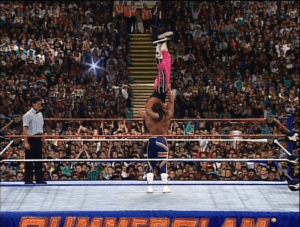
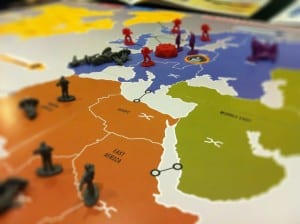
Besides the abusive rapists Davey Boy Smith and Jim Neidhart, the chief antagonist in Under the Mat is Diana’s scum brother Bret. Rotten from the start, Bret showed his obsession with ruling the world at an early age. Just look at the devious way he played Risk!
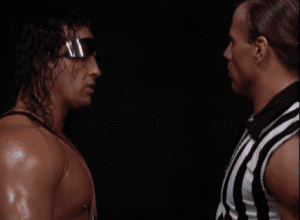
Need more proof? In the documentary Wrestling with Shadows, Bret edited out his spitting at Shawn Michaels to make Shawn’s subsequent chair shot look unprovoked. Never mind that the chair-shot clip plays shortly after scenes where Bret discusses the match’s pre-determined finish with Pat Patterson and Shawn himself, and immediately after an in-character Bret is seen saying “f*** you” to Shawn’s face. No, Diana speaks as if Bret sat in the editing room and personally spliced the film reels to make Shawn Michaels look bad.
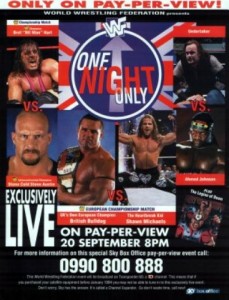
By Diana’s account, Hitman further spiraled out of control from there. Bret wanted to quit the WWF because at One Night Only in the UK, Bulldog headlined; this meant that, for the first time, Bret didn’t get to be in the main event as his contract supposedly demanded (if you ignore those six other times in the past year where he didn’t main-event the PPV).
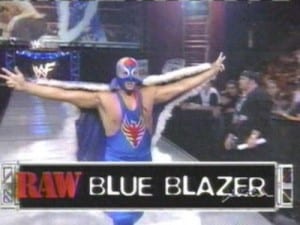
Bret disowned Owen for not leaving the WWF after the Montreal Screwjob, the Hitman obviously not caring about Owen’s family, how fun Owen thought the WWF was now that Bret was gone, or how much Owen loved Vince McMahon and the Blue Blazer gimmick.
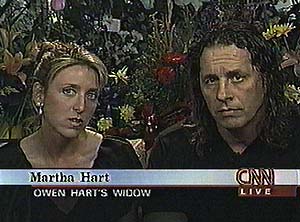
He later disowned the rest of the family for not supporting the planned $500 million lawsuit that he talked Martha Hart into filing over Owen’s death, which he claimed was intentional on Vince’s part. Maybe he was just bitter at Diana because the news of Davey Boy’s staph infection (in early 1999) overshadowed Bret’s retirement (in early 2000).
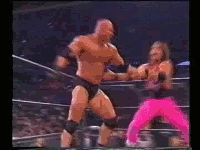
And as for said retirement, Diana implies Bill Goldberg couldn’t have ended Bret’s career with an errant kick to the head. She figures that Goldberg, who could somersault in the air, was too coordinated, and that Bret retired so that he could cash in on his insurance. Obviously, this was published before Bret’s stroke at age 44.
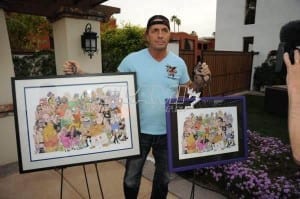
The only time Diana gives Bret a little credit is when she is using him to tear down the teachers at her high school. They used to call Bret stupid and say he’d never amount to anything, but he proved them wrong by growing up to write a newspaper column and publishing his cartoons. Yeah, and he also wrestled a bit, I hear.
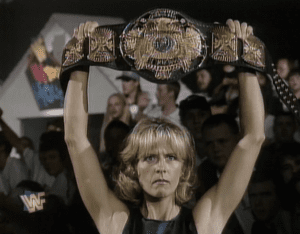
Then again, Bret’s success in wrestling wasn’t his own doing. After all, he only won the WWF title in the first place, according to Diana, because Davey Boy was supposed to win the world championship but got unjustly fired for steroids.
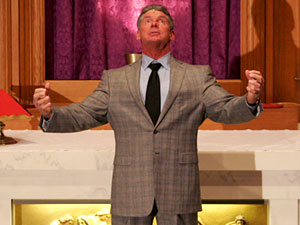
Not that Diana blames Vince McMahon for that one, as he was just being understandably careful to rid his company of drugs. In stark contrast to everyone in the book besides Owen and Diana herself, Vince is practically a saint who cleaned up the WWF at great personal expense, was like a father to Owen, and even offered Davey Boy Smith a commentary position if he couldn’t return to wrestling.

Commentary.
This, despite Davey Boy being Britain’s answer to Ahmed Johnson on the mic.
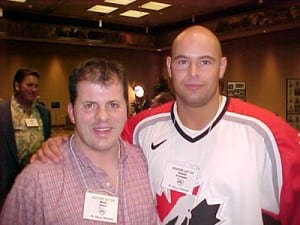
As I read the book, I couldn’t figure out why she was always so glowing in her praise of Vince. If he were any other character in her book, Di would have detailed his upbringing in a broken home, how he didn’t meet his dad until he was twelve, how he had affairs, how he had been accused of rape, and how his daughter had gotten breast implants. Whose job is Diana trying to secure, I thought, by canonizing Mr. McMahon? The answer doesn’t come to light until the last chapter, when she mentions that not only is her son Harry (David Hart Smith) going to be a wrestler, but that she is dating “a young, upcoming wrestler named James Trimble,” (better known to Stampede Wrestling fans as “Dick Butkus, Jr.”).
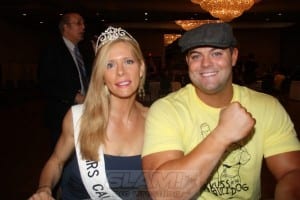
Unfortunately for Di, Trimble never made it to the big leagues, nor did she get to manage her son Harry as “Stu” predicted in the foreword, at least not in WWE.
Fun Fact: Sting was overrated, and Eric Bischoff has false teeth.
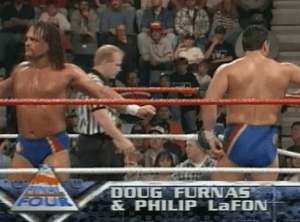
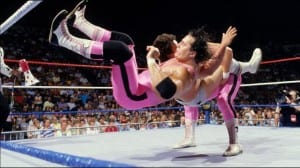
The falsehoods in Under The Mat aren’t limited to just fabrications, exaggerations, and kissing up to the boss, though. Factual errors abound, from the 7’4” Andre the Giant to Owen Hart’s 15 years teaming with The British Bulldog. We are told that Phil Lafon later wrestled for the WWF as Dan Kroffat, which is true except for the Dan Kroffat part. The Hart Foundation’s double-team finisher was called, “The Avalanche” in Diana Hart’s universe, while Ahmed Johnson’s Pearl River Plunge was a scissor kick.
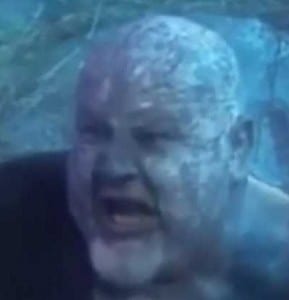
The Iron Man match between Bret and Shawn Michaels occurred at Wrestlemania 13 and not 12. Gorilla Monsoon was “a former Hungarian wrestler,” and Road Warrior Animal’s real name is Joe Laurentis. Readers encounter familiar names like “Jeff Jarret and his wife, Deborah McMichael,” “The Edge,” “Brian Pilman,” “Steve ‘Mondo’ McMichael,” “Peter Maiava,” “Rocky Maiava,” and the famed “King Curtis Ikea,” who was apparently just like the mastermind of the Dungeon of Doom, but Swedish and self-assembled.
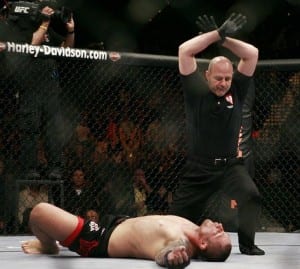
She describes Ultimate Fighting Championship as, “a fierce, no-rules-barred competition.” Presumably, restrictions and regulations can be made up on the fly in such a fight, since no rules are barred.
Ultimately, if one can overcome the thorough documentation of human misery presented throughout, there is humor (unintentional as it may be) to be found on the last page of Under The Mat.
In an attempt to end this artless mess of a book with a touch of literary flair, the author alludes to the shoot-fighting term, “to guzzle,” which is mentioned just once in the middle of the book and means not “to drink greedily or habitually” but “to move in for the kill.” A hundred pages later, she closes with these inspirational lines about how she’s ready to take on whatever life throws at her:
“You’ve gotta know what the other guy’s move is before you move. And now I’m finally ready to guzzle ’em.”
For any reader who merely skimmed over the brief explanation of what “guzzle” means, it appears that Diana is preparing for oral sex.
And you thought just her book sucked.


